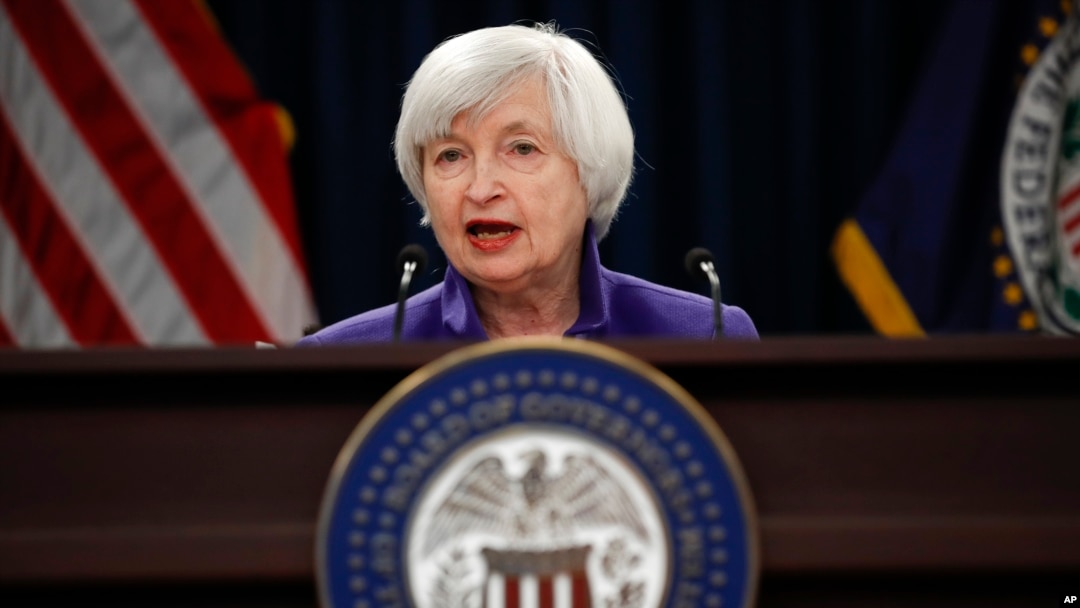The U.S. central bank raised its key interest rate slightly Wednesday, but left the level low enough to continue stimulating economic growth.
The Federal Reserve pushed up rates a quarter of a percent to a range between 1.25 and 1.5 percent. The increase leaves the benchmark rate below historic averages.
The Fed slashed rates nearly to zero during the recession in a bid to boost the economy and fight unemployment by making it cheaper to borrow the money needed to build factories, buy equipment and hire people.
Janet Yellen, at her last press conference as chair of the Federal Reserve, said economic growth is "solid" as business investment and overseas demand grow. She said the impact of tax changes working their way through Congress is "uncertain" but would probably give a "modest lift" to the economy over the next few years. Fed officials are expected to continue raising interest rates gradually.
The recession ended and expansion resumed in 2009. Unemployment was cut from 10 percent to the current 4.1 percent and the Fed eventually decided the recovering economy needed less assistance and started raising rates. Leaving interest rates too low for too long could overstimulate the economy and spark a sharp increase in prices.
The newest U.S. inflation data came out Wednesday, showing that prices rose 2.2 percent during the past 12 months. Outside the volatile areas of food and energy, the overall economy expanded at a 1.7 percent annual rate. That so-called "core" rate remains below the 2 percent rate that Fed experts think is best for economic growth.
Some analysts predict the Fed will raise rates a couple more times next year as experts balance the need to boost growth against worries that inflation could jump out of control.


